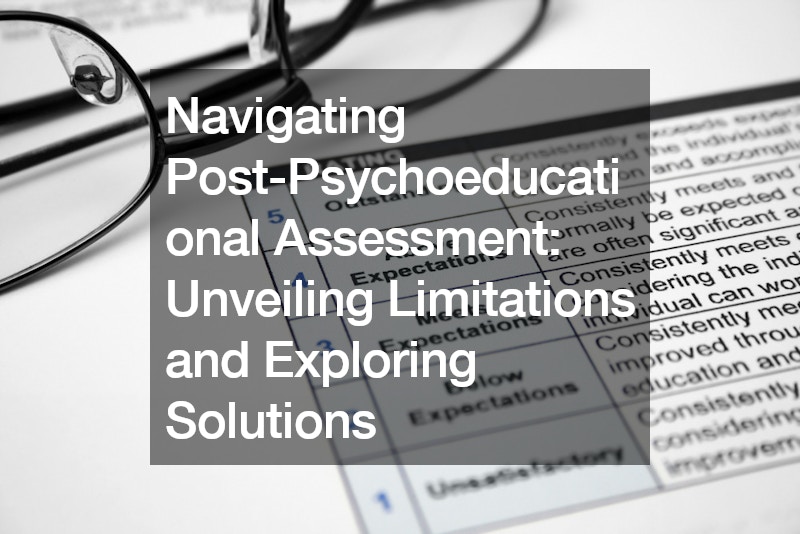
A psychoeducational assessment provides valuable insights into an individual’s learning style, cognitive strengths and weaknesses, and potential underlying challenges. While the assessment itself is an important step, understanding the results and navigating the path forward can be daunting.
This article will guide you through the post-assessment process, helping you translate the findings into actionable strategies for success.
Understanding Your Assessment Report
The psychoeducational assessment report will typically include several sections:
Background Information: This section summarizes your demographic information, referral reason, and any observations made during the assessment process. Test Results: This section details the scores obtained on standardized tests used during the assessment. These scores may reveal areas of strength and weakness in various cognitive domains like reading, writing, math, processing speed, and working memory. Diagnosis (if applicable): In some cases, the assessment may lead to a diagnosis of a learning disability (LD) such as dyslexia, dyscalculia, or ADHD. The report will explain the rationale behind the diagnosis and its implications. Recommendations: This crucial section outlines specific recommendations for supporting the individual based on the identified strengths and weaknesses. These may include educational interventions, accommodations, and strategies for enhancing learning efficiency. Unveiling Limitations: A Starting Point, Not a Setback
Receiving a diagnosis or learning about specific challenges might initially feel discouraging. However, it’s important to remember that a psychoeducational assessment is a valuable tool for understanding your learning profile. Identifying limitations provides the key to unlocking potential and finding targeted solutions.
Here’s how to reframe the findings:
Increased Self-Awareness: The assessment results provide a deeper understanding of your learning style and how you process information. This self-awareness empowers you to advocate for your needs and seek appropriate support. Explanation for Struggles: Often, individuals with learning difficulties experience frustration without understanding the underlying reasons. The assessment clarifies these reasons, validating the challenges faced. Pathway to Personalized Support: The recommendations section is your roadmap to success. These strategies equip you with the tools to navigate learning challenges and unlock your full potential. Exploring Solutions: Strategies for Success
The specific solutions will vary depending on the identified limitations. Here are some general strategies that may be recommended:
Educational Interventions: These might include specialized instruction, targeted therapies (e.g., reading or math intervention), or assistive technology tools to enhance learning efficiency. Accommodations: Educational accommodations level the playing field, allowing individuals with learning difficulties to demonstrate their true abilities. This could include extended time on tests, access to audiobooks, or modified assignments. Self-Advocacy Skills: Learning how to advocate for yourself ensures you receive the support you need in academic and other settings. Organizational Strategies: Developing effective organizational skills helps manage tasks, improve time management, and reduce frustration. Study Skills Training: Specifically tailored approaches to learning and studying can significantly benefit individuals with learning differences. Beyond the Report: Building a Support System
The post-assessment journey is not an individual endeavor. Building a strong support system is crucial for your success:
Discuss the Report with Your Family: Sharing the findings with your family allows them to understand your learning needs better and provide emotional support. Collaborate with Educators: Schedule meetings with teachers and school counselors to discuss the recommendations and develop an individualized education plan (IEP) if applicable. Consider Individual Therapy: Working with a therapist can help develop coping mechanisms, address any emotional challenges associated with learning differences, and build self-esteem. Connect with Support Groups: Connecting with others facing similar challenges can provide valuable emotional support and a sense of community. Conclusion: A Journey of Growth and Empowerment
A psychoeducational assessment begins a journey toward maximizing your learning potential. By understanding your strengths and weaknesses, along with the support of a collaborative team, you can develop strategies to overcome challenges and thrive in academic and future endeavors. Remember, the post-assessment process is not about limitations; it’s about unlocking your full potential and empowering you to achieve your goals.
.

